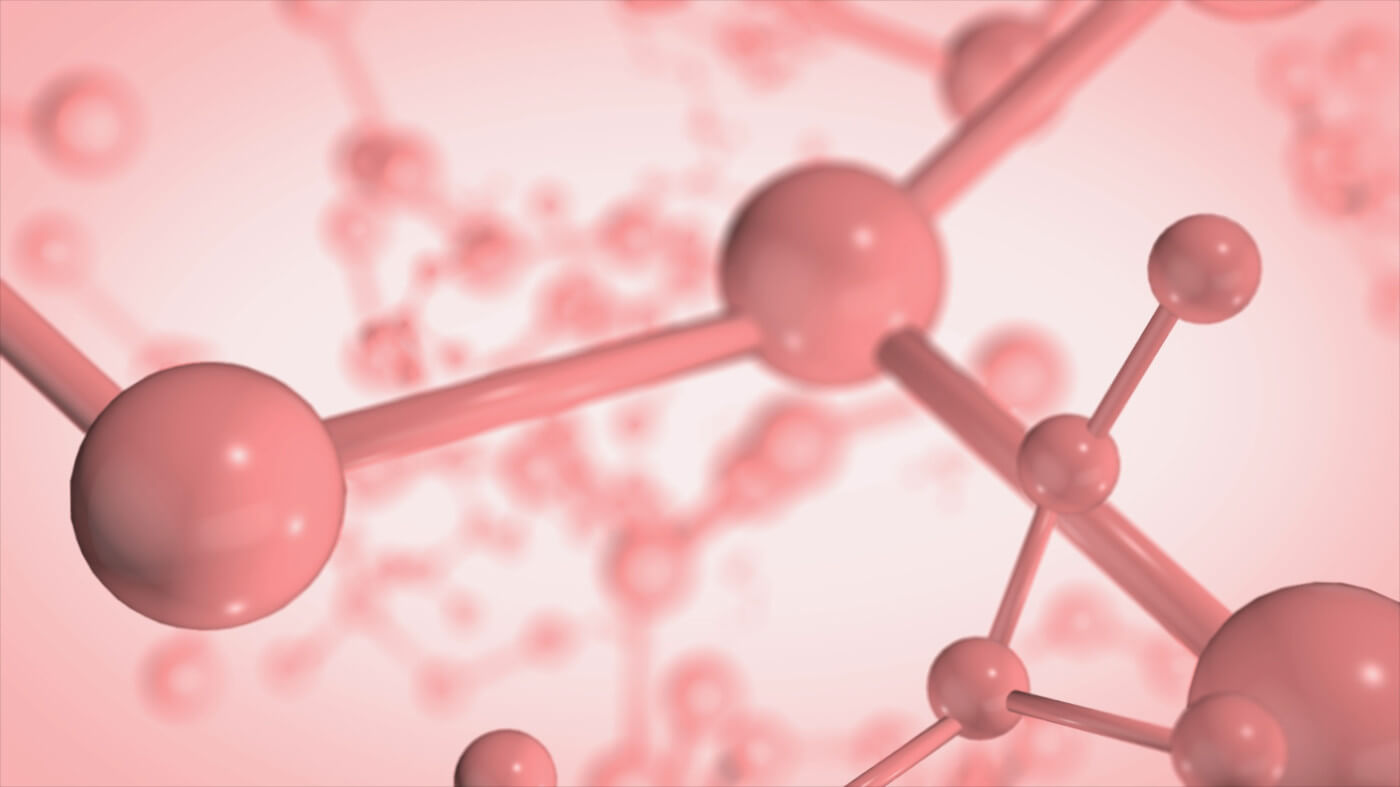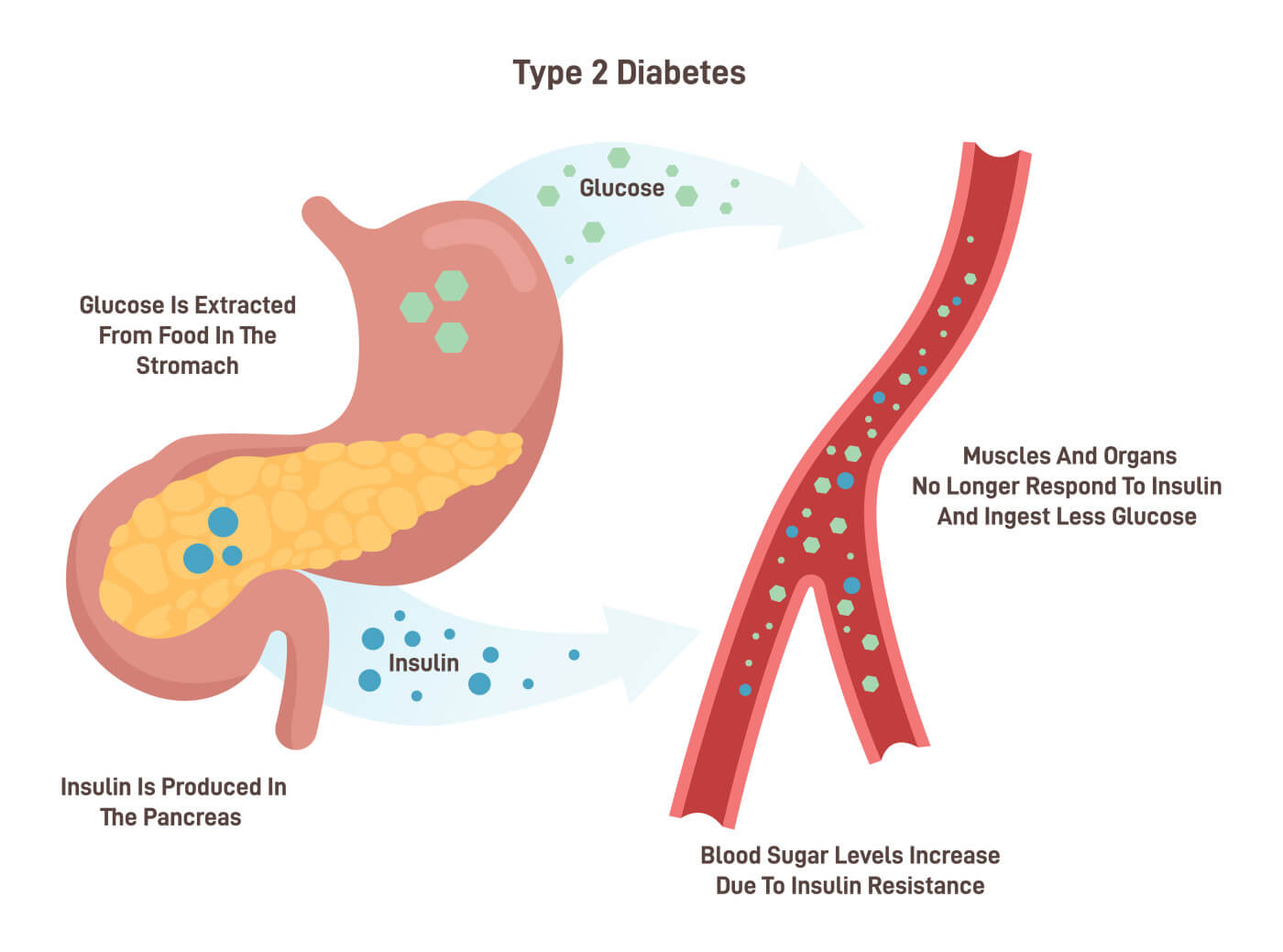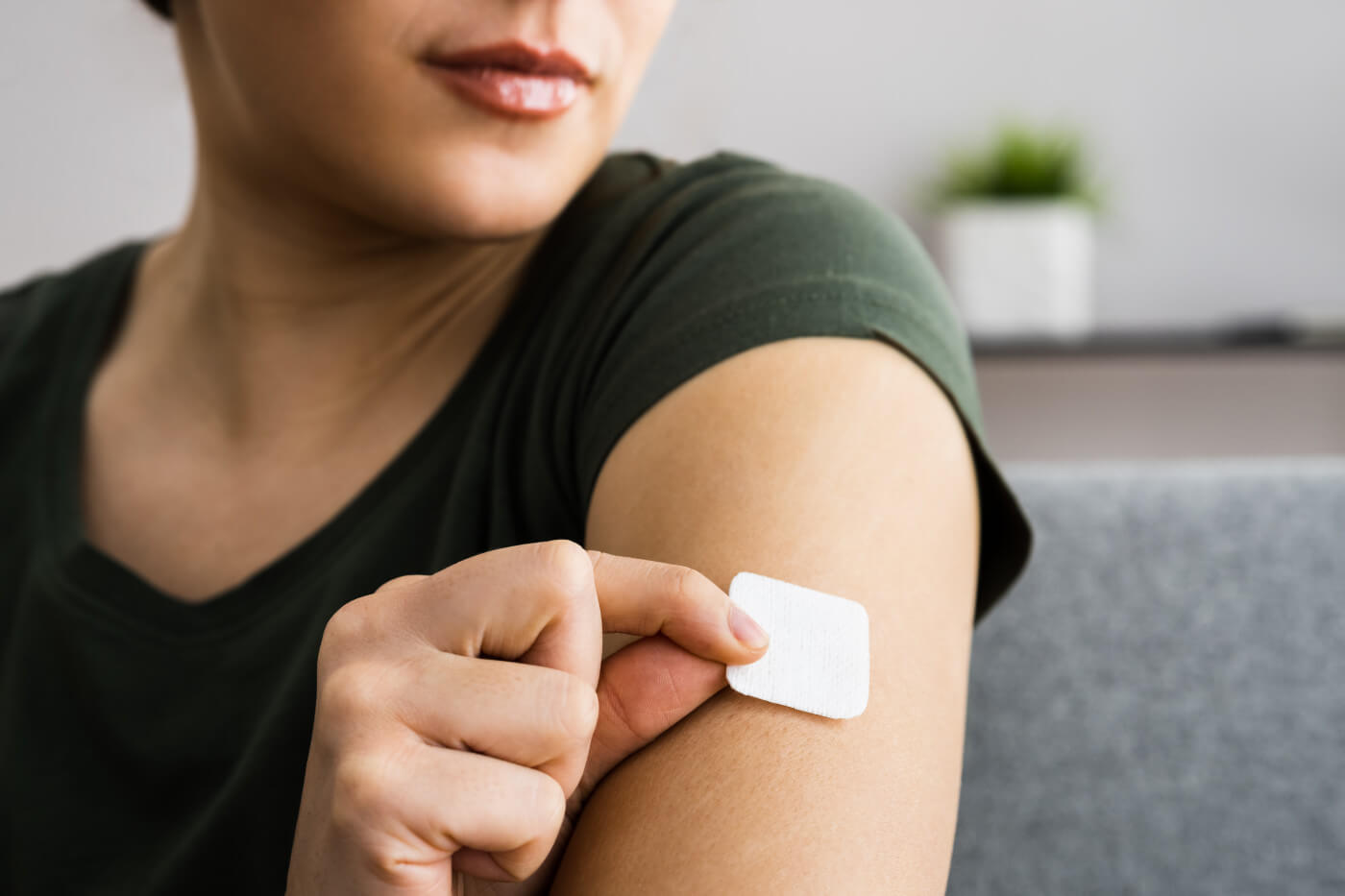Sexual dysfunction is all too common for women—with an estimated 41% experiencing some type of problem in the bedroom. These issues typically include dryness, loss of interest, decreased pleasure, and pain or discomfort during intercourse.
While it’s easy to blame your age, your partner, or even yourself for sexual dysfunction, these issues could be caused by a hormonal imbalance. And if they are, a simple treatment could help you stop the problems for good.
In this blog, we’ll explore the 7 hormones known to wreak havoc on your sex life—and how you can fight back to improve your quality of life and enjoy intimacy again.

What Are Hormones, Exactly?
Hormones are chemical messengers naturally produced in your endocrine glands, thyroid glands, parathyroid glands, ovaries, and pancreas. These messengers are responsible for countless bodily processes, from your appetite and weight management to sleep and energy levels.
When it comes to intimacy, sex hormones often play the biggest role. Female sex hormones include estrogen, progesterone, and testosterone. These hormones directly impact sexual development and reproduction, as well as:
- Puberty
- Hair growth
- Body fat distribution
- Bone and muscle growth
- Cholesterol levels
- Inflammation
- Sexual desire
But sex hormones aren’t the only hormones that can influence intimacy with your partner. Other hormones—including thyroid hormones, growth hormone, and even insulin—can also impact your sexual health.
The Types Of Hormones That Can Impact Your Sex Life
Estrogen
Probably the most well-known sex hormone, estrogen is a group of hormones that influence the reproductive tract, urinary tract, heart, blood vessels, bones, breasts, hair, and even the brain. Both men and women produce estrogen, though levels are higher in women.
Estrogen promotes vaginal lubrication and increases sexual desire, so it’s no surprise that low estrogen levels can drastically affect sex. In addition to dryness and vaginal atrophy, an estrogen imbalance can also cause:
- Irritation and mood swings
- Fatigue and poor quality sleep
- Weight gain in the hips, thighs, and waist
- Dry skin
Menopause is the most common cause of estrogen deficiency in women, but it’s not the only culprit. Age, being overweight, high blood pressure, diabetes, PCOS, strenuous exercise, and certain medications can all cause your levels to drop.

Progesterone
Produced by the adrenal glands and ovaries, progesterone supports menstruation and helps with the early stages of pregnancy. It helps prepare the lining of the uterus, the endometrium, for a fertilized egg to grow.
Unlike estrogen, progesterone affects your sex life when its levels become too high. Increases in progesterone reduce your libido. Other symptoms of high progesterone include:
- Breast tenderness
- Fatigue
- Anxiety and/or depression
- Bloating
- Weight gain
High progesterone levels can be caused by birth control medication, ovarian cysts, and congenital adrenal hyperplasia. Hormone replacement therapy, if not well balanced, can also cause your progesterone levels to become too high.
Testosterone
Though misconceived to be a male-only hormone, testosterone also plays an important role in women’s health. In women, testosterone affects your fertility, sexual desire, menstrual cycle, bone health, and red blood cell production.
When your testosterone levels get too low, you’ll often experience a noticeable drop in libido. Other symptoms to watch out for include:
- Loss of energy
- Muscle weakness
- Vaginal dryness
- Dry skin
- Thin, brittle hair
- Sleeping problems
- Depression and/or anxiety
As is the case with men, women’s testosterone levels naturally decrease with age. Low levels can also be caused by certain medications, other hormonal imbalances, menopause, malnutrition, or adrenal insufficiency.

Thyroid Hormones
Hormones produced by the thyroid gland impact virtually every part of the body, from your individual cells to entire organs. Thyroid disorders are known to cause an array of problems, but you might not know that sexual dysfunction is one of the most common symptoms.
Both hypothyroidism (underactive thyroid) and hyperthyroidism (overactive thyroid) directly impact your sexual wellness. Thyroid disorders can cause women to experience a loss of sex drive, vaginal dryness, and pain during intercourse.
You may also experience hypoactive sexual desire disorder (HSDD), which is classified as the absence of sexual fantasies, decreased desire for sexual activity, and decreased sexual thoughts.
The symptoms of thyroid disorders vary depending on whether your levels are high or low. Hyperthyroidism is associated with weight loss, anxiety, muscle weakness, irritability, difficulty sleeping, and an increased heart rate. Hypothyroidism typically manifests in the form of constipation, fatigue, sensitivity to cold, weight gain, and cognitive difficulties.
Insulin
Insulin, a hormone produced by the pancreas, helps regulate your energy supply by transporting glucose throughout the body. This hormone is critical to the functioning of the liver, skeletal muscles, blood vessels, central nervous system, kidneys, bones, and skin. The higher your insulin levels, the lower your blood sugar.
Prediabetes, Type 1 Diabetes, and Type 2 Diabetes can all cause hyperglycemia, where your blood sugar levels get too high. Hyperglycemia can have a serious impact on many aspects of your health—including your sex life. High sugar levels can damage your blood vessels and nerves over time. This restricts the amount of blood flowing to sexual organs, causing a loss of sensation and pleasure.

Additionally, hyperglycemia has been linked to other forms of sexual dysfunction, including dryness, decreased sexual desire, problems with arousal, and pain during intercourse. Other symptoms include:
- Increased thirst and dry mouth
- Increased urinary urgency
- Fatigue
- Blurred vision
- Weight loss
- Frequent infections
Hyperglycemia is a dangerous condition and, if left unchecked, can lead to severe dehydration and diabetic ketoacidosis. The most common causes of hyperglycemia are diabetes, problems with your pancreas, or excess cortisol or growth hormone.
Growth Hormones & Prolactin
Growth hormones and prolactin are pituitary hormones that affect growth. Although these hormones aren’t classic sex hormones, research has shown these could play a role in both men and women’s sexual function.
Prolactin modulates the release of pleasure hormones during sexual behavior, and levels of prolactin are higher after orgasms. As a result, low levels of prolactin can impact how much you enjoy sex (and how often you want to do it). Similarly, women with too high and too low growth hormone levels have experienced a decrease in desire and arousability.
Growth hormone and prolactin levels naturally decrease with age, meaning menopausal and post-menopausal women are at the highest risk of experiencing imbalances. Genetic defects and brain injuries can also impact your body’s production of these hormones.

How To Stop Your Hormones From Sabotaging Your Sex Life
Hormone imbalances can significantly impact your quality of life. Unfortunately, they’re very common. Practically every woman will experience a hormonal imbalance at some point in her life. This is especially true when menopause occurs and sex hormone levels naturally decrease.
Treating your hormonal imbalance is the best way to take control of your symptoms.
In some cases, specific prescriptions or peptide supplementation may be required to restore hormone balance. Often, however, bio-identical hormone replacement therapy can provide fast and long-lasting relief.
Bio-identical hormone replacement therapy (BHRT) is a natural, FDA-approved treatment custom-tailored to your specific hormonal imbalance. BHRT is used to treat sex hormone imbalances, particularly those related to menopause.
Unlike traditional hormone replacement therapy, BHRT is personalized based on your blood work and symptoms, not a one-size-fits-all treatment. This helps reduce side effects while maximizing the treatment’s benefits.
Speaking of benefits, BHRT has been shown to:
- Improve lubrication, reduce vaginal dryness, and prevent vaginal atrophy
- Boost your libido and sexual pleasure
- Minimize symptoms of menopause, including hot flashes, night sweats, and mood swings
- Prevent osteoporosis by increasing your bone-building estrogen levels
- Make it easier to build muscles and improve muscle strength
Sexual issues caused by sex hormone imbalances, thyroid disease, growth hormone imbalances, and low levels of prolactin can all be drastically improved with the right treatment. Sexual dysfunction caused by nerve damage from hyperglycemia, on the other hand, may become permanent if the condition is not caught quickly.
If you suspect you have a hormonal imbalance, it’s important to see a trusted medical professional as soon as possible for proper testing. This will not only allow you to get on top of the symptoms, but it will also help prevent an imbalance from further damaging your body.

Is Bio-Identical Hormone Replacement Therapy Right For You?
In the past, women were cautious to try hormone replacement therapy. Today, the treatment is considered safe for a vast majority of patients—and even recommended for women post-menopause to improve their bone health and quality of life.
If any of the following are true for you, chances are you’ll see a significant improvement in your symptoms with BHRT:
- You’re experiencing vaginal dryness, itching, burning, or pain with sex
- Your sex drive and sexual pleasure aren’t what they used to be
- You are currently undergoing (or have previously gone through) menopause
- You are at a higher risk of osteoporosis
- You have an estrogen, testosterone, or progesterone imbalance
BHRT isn’t recommended for women over 60, those with a history of certain cancers or blood clots, or those with a family history of strokes. It’s a good idea to talk to your doctor to determine whether BHRT would be right for you.

Don’t Let Your Hormones Get In The Way Of Your Romance
Hormone imbalances can be detrimental to your quality of life, especially when they start to affect the bedroom. But you don’t have to settle for uncomfortable sex, decreased intimacy with your partner, or a lack of sex entirely. Regardless of your age, you deserve to enjoy a healthy, satisfying sex life.
Hormone replacement therapy is one of the best ways to restore your hormone balance and rejuvenate your relationship. If you suspect you may be experiencing one of the hormonal imbalances mentioned above, reach out to a trusted medical professional for support. By treating the root cause of sexual dysfunction, you can get back to getting swept up in the romance.
The Resurge Clinic has helped thousands of women regain their confidence and quality of life with personalized bio-identical hormone replacement therapy. Whether you have experienced the symptoms of a sex hormone imbalance for years, or you’re just noticing the warning signs, we’re here to help.
Schedule a consultation now to have your levels tested and receive your custom BHRT treatment.



